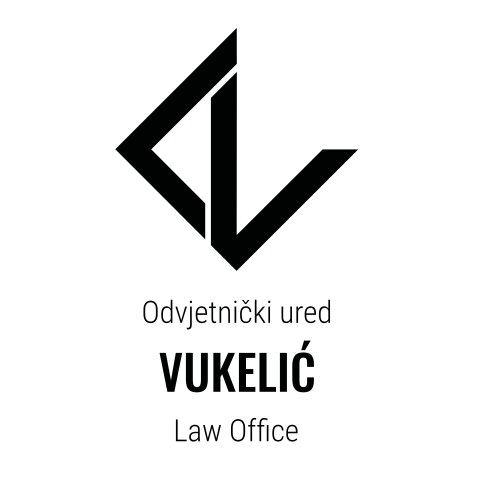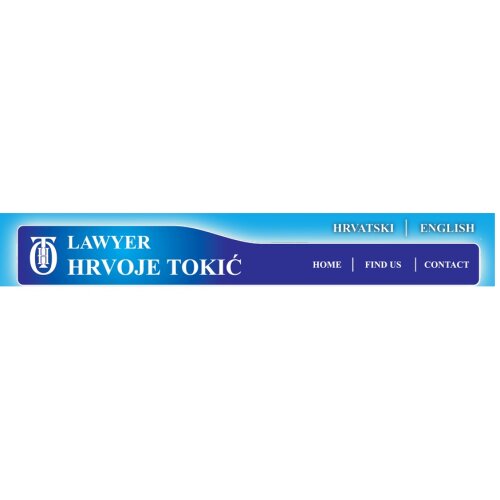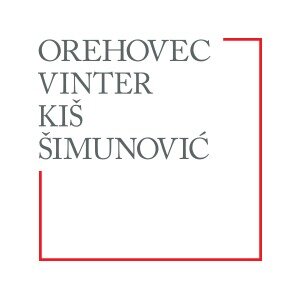Best Mortgage Lawyers in Croatia
Share your needs with us, get contacted by law firms.
Free. Takes 2 min.
Free Guide to Hiring a Real Estate Lawyer
Or refine your search by selecting a city:
List of the best lawyers in Croatia
About Mortgage Law in Croatia
Mortgage law in Croatia is primarily governed by the Law on Ownership and Other Real Rights (Zakon o vlasništvu i drugim stvarnim pravima) and the Law on Obligatory Relations (Zakon o obveznim odnosima). These laws regulate the creation, enforcement, and termination of mortgage rights. A mortgage, known locally as "hipoteka," is a legal instrument that allows the borrower to use property as collateral to secure a loan from a lender. Mortgages are common in Croatia, especially for purchasing real estate and other significant investments.
Why You May Need a Lawyer
There are several situations in which you may require legal help concerning mortgages in Croatia. These include:
- Negotiating or drafting mortgage agreements to ensure fair terms and legal compliance.
- Resolving disputes between borrowers and lenders, such as foreclosure or repayment issues.
- Conducting due diligence for property purchases, verifying title deeds, and ensuring no encumbrances exist.
- Assisting with refinancing or restructuring existing mortgages.
- Advising on legal implications of cross-border mortgages and transactions involving foreign parties.
Local Laws Overview
In Croatia, several regulations are particularly relevant to mortgages:
- The mortgage must be registered in the land registry to be valid and enforceable.
- The mortgaged property itself is used to secure the debt, meaning the property can be sold to repay the debt if the borrower defaults.
- Croatian banks and financial institutions often require a notary public to authenticate mortgage agreements, ensuring legal compliance.
- There are specific consumer protection laws related to mortgages to prevent unfair lending practices.
- The foreclosure process is regulated, providing a legal framework for lenders to reclaim their funds if a borrower fails to meet their obligations.
Frequently Asked Questions
What is the process for obtaining a mortgage in Croatia?
To obtain a mortgage, you generally must complete a mortgage application with a bank, submit necessary documentation (proof of income, credit history, property documents), and undergo an approval process. Once approved, a contract is signed, and the mortgage is registered in the land registry.
Can foreign nationals get a mortgage in Croatia?
Yes, foreign nationals can obtain mortgages in Croatia, but the process may be subject to additional requirements or restrictions depending on nationality and residency status.
What are the typical interest rates for mortgages in Croatia?
Interest rates can vary based on the lender and the specifics of the loan agreement, including the term and amount. It is advisable to compare offers from different banks.
How long does it take to approve a mortgage?
The approval process can vary, but it typically takes a few weeks to complete. This includes document verification and property evaluations.
Is early repayment of a mortgage possible in Croatia?
Yes, early repayment is allowed, but there may be fees or penalties involved. It is essential to check the terms of your specific mortgage agreement.
What happens if I default on my mortgage?
If you default, the lender may initiate foreclosure proceedings, which could lead to the sale of the property to recover the debt. Legal advice is recommended if you are in this situation.
Are there any fees involved in taking out a mortgage?
Yes, typical fees may include notary fees, property valuation fees, land registry fees, and administrative charges by the lender.
Can I transfer my mortgage to another lender?
Transferring a mortgage to another lender, also known as “refinancing,” is possible, and may involve fees. It is recommended to consult with both your current lender and a legal professional before proceeding.
What documents are required for a mortgage application?
Commonly required documents include proof of identity, proof of income, current employment details, and documents related to the property.
Is it necessary to involve a lawyer for all mortgage dealings?
While not legally required, it is advisable to consult a lawyer for complex transactions, negotiations, or disputes to ensure legal compliance and protect your interests.
Additional Resources
For further assistance with mortgages in Croatia, consider reaching out to the following organizations:
- Ministry of Justice of the Republic of Croatia (Ministarstvo pravosuđa Republike Hrvatske)
- Croatian National Bank (Hrvatska narodna banka)
- Local legal aid offices and consumer protection agencies
- Croatian Chamber of Commerce (Hrvatska gospodarska komora) for business-related queries
Next Steps
If you need legal assistance in connection with a mortgage, consider the following steps:
- Consult with a legal professional specializing in property and mortgage laws for personalized advice.
- Gather all necessary documents related to your mortgage or property transaction.
- Check with your local bar association for a list of qualified lawyers.
- Consider legal aid services if cost is a concern.
- Be proactive in resolving any issues with your lender to avoid prolonged disputes or financial complications.
Lawzana helps you find the best lawyers and law firms in Croatia through a curated and pre-screened list of qualified legal professionals. Our platform offers rankings and detailed profiles of attorneys and law firms, allowing you to compare based on practice areas, including Mortgage, experience, and client feedback.
Each profile includes a description of the firm's areas of practice, client reviews, team members and partners, year of establishment, spoken languages, office locations, contact information, social media presence, and any published articles or resources. Most firms on our platform speak English and are experienced in both local and international legal matters.
Get a quote from top-rated law firms in Croatia — quickly, securely, and without unnecessary hassle.
Disclaimer:
The information provided on this page is for general informational purposes only and does not constitute legal advice. While we strive to ensure the accuracy and relevance of the content, legal information may change over time, and interpretations of the law can vary. You should always consult with a qualified legal professional for advice specific to your situation.
We disclaim all liability for actions taken or not taken based on the content of this page. If you believe any information is incorrect or outdated, please contact us, and we will review and update it where appropriate.
Browse mortgage law firms by city in Croatia
Refine your search by selecting a city.

















